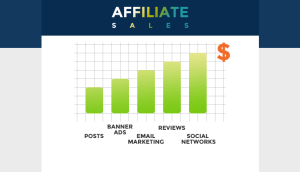
As a website owner, your website’s security is your top priority; especially if the website is built on WordPress. Built on open source script, it is vulnerable to all sorts of threats and perhaps the reason behind website getting hacked so easily.
To ensure your website’s safety, it is important to restrict the access of your WordPress admin area to only those people who access it.
1. Protect WordPress Admin Area
The best way to do so is get our home IP address and add these lines to the .htaccess file in your WordPress admin area folder replacing xx.xxx.xxx.xxx with your IP address.
In case if you are using multiple devices like desktop, laptop, office PC etc. all you have to do is simply allow another “allow from xx.xxx.xxx.xxx” statement on the new line.
It is recommended that you limit the access; which will protect your website from web attacks.
-
Using Strong Passwords

It is no surprise when it comes to keeping passwords, people still prefer “123456789” or such common easy-to-guess passwords like birthdate, surname etc. which gives an easy access. The best tip is to have a long sentence that you can remember easily. Also, make sure that your password carries special characters in it. These kinds of passwords are never easy to access and can help you from keeping your WordPress site safe.
-
You Don’t Need Using “Admin” Name
When you are in dilemma of “how to start a blog” the first thing you will notice when installing a WordPress is; it creates “admin” account automatically. So when you install WordPress, creating an admin account and get started with the basics is what you learn first. However a default user with all-inclusive admin rights makes an easy target for the hackers. What you can do to avoid this:
- Create a new user giving admin right in admin area
- Log out of the backend and logging again as a new user
- It is important that you delete the old “admin” account from the list
2. Making Sure That Your WordPress Website Has A Secure Hosting

The WordPress website is as secure as your hosting account. What is the meaning of having a latest WordPress version website, if a hacker can easily hack your hosting platform? Hence it is important that you have your hosting platform done from a company wherein security is taken as top priority. The must-haves features are:
- Intrusion detecting system
- Account isolation
- Web application firewall
- Support for the latest MySQL and PHP version
3. Make Sure That Your Device is Free From Malware Virus
If your system is infected, the chances are higher that logging into your WordPress Admin area too can get affected because of it. It is wise to have an updated antivirus installed in your system to avoid any consequences. Not just your system, but keeps in tab your overall security.
Apart from the above mentioned tips to protect your WordPress Admin area you can also implement few tasks like:
4. Protect your wp-config.php file
Not all ISPs will let you transfer the data to the higher level than primary directory. Administrators do not have the permission to execute the process if they don’t have the rights. In this type of cases, external access to wp-config.php file can be excluded through .htaccess file.
4. Suppress the feedback on the login page
The login page of the WordPress is the only entry to administration area. This area can only be accessed upon providing error free verification. When an endless attempt to enter the administration area fails, WordPress has a way to tell a user what could be the problem might be.
WordPress becomes trivial and provides a unique, meaningful message for each error. So if a user name is typed incorrectly, it is conveyed. For instance, if the passcode is wrong it is told.
A simple one line coding can resolve this problem: The output of the error on the log-in page is simply blocked to the hackers. All you have to type in the code as below mentioned:
add_filter(‘login_errors’,create_function(‘$a’, “return null;”));
5. Restrict the erroneous login attempts
WordPress doesn’t have any record of failed number of attempts for login which is a huge drawback for any website owner. Fortunately there are many plugins available to secure login area, like WP Limit login attempts, Login LockDown etc. Installing these two extensions, it will not only keep the track of the failed logins but also saves your website from being hacked.
6. Update Plugins & Themes regularly
Keeping your software updated is the most important thing to do to save your website from hackers. The latest version of plugins and updates are always a click away. All you have to do is ensure they are done regularly and also remove the plugins which are no more needed.
7. Use SSL to encrypt data

When you are logging into the WordPress admin area ensure that you do it through encrypted channel. For e.g. https://. Confirm with your web hosting service provider that you are given SSL or at least a shared SSL certificate. There is also a separate plugin available “Admin SSL” which you can readily install and compatible with the latest version.
8. Back up your website regularly
Last but definitely not the least; it is important that you are working on the latest/updated version of WordPress. With every new version there are new installations, plugins and extension available that not only enhance your WordPress website to perform better but also help keep the hackers at bay.
Final Thoughts
There are no full proof guarantees of saving your website from hacker unless you have really been careful about the safety measures. With the above mentioned tips to protect your WordPress admin area, you will definitely be able to keep the looters at bay. Have the best of antivirus install, keep tab on the activities happening, limit the logins and of course keep up to date your website this are the only sure-fire way to have a secure WordPress Admin area.
If you are a beginner it will take few days or may be months to adjust the new pattern of protecting your WordPress admin area, but eventually this habit will lead you to less of hassles of getting your website hacked.
Author Bio:
Catherrine Garcia is an experienced Web Developer and a passionate blogger. She loves to share her knowledge through her articles on web development and WordPress.




